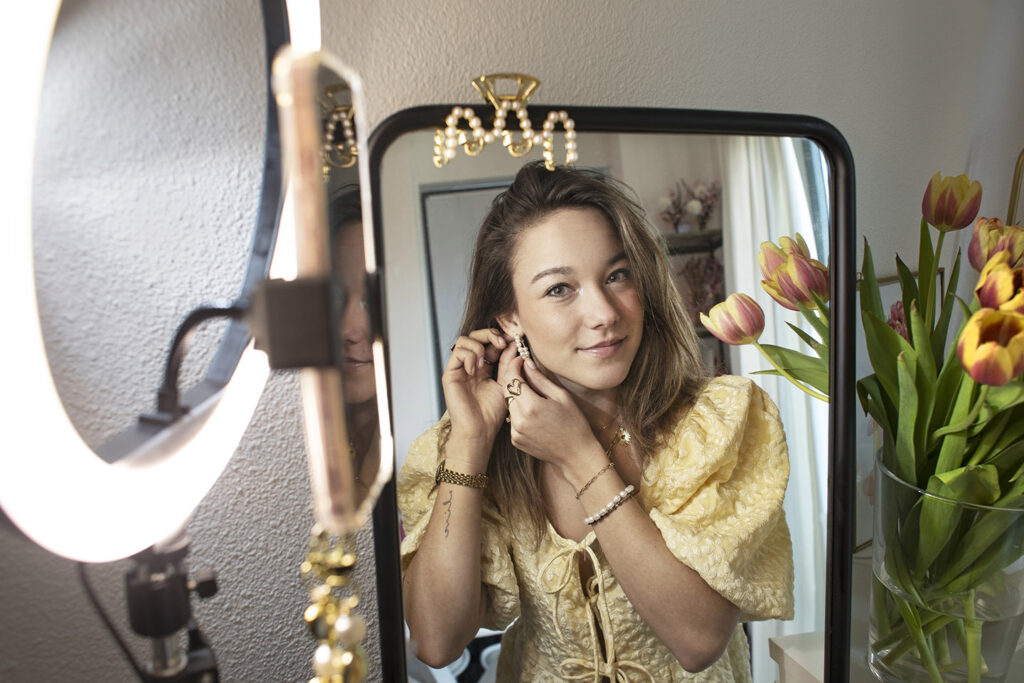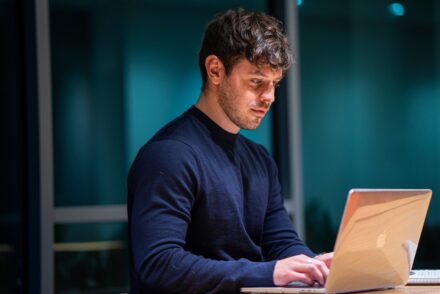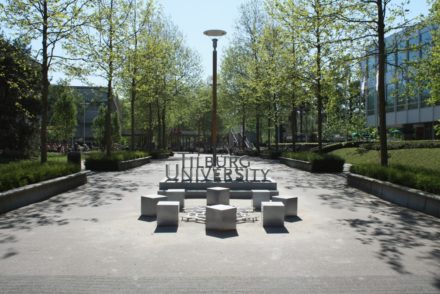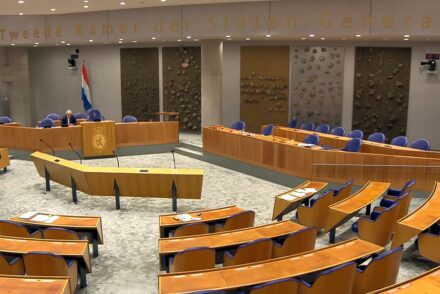Law student Myrthe was diagnosed with a brain tumor but chooses to live
Law student Myrthe Raapshorst (21) had a busy student life until a brain tumor unexpectedly changed her future. Now, more than a year after the diagnosis, she is trying to continue her studies and social life: ‘I don’t want to live with an expiration date in my mind.‘

Univers speaks to Myrthe Raapshorst on a sunny day. Because it is warmer than usual at this time of year, she is wearing a sleeveless top. This makes the tattoos on her arms clearly visible. The word ‘alive’ shines on her wrist. ‘I had that done last year after my operation,’ she says. ‘It is my way of recording that I am alive.’
Her left upper arm is decorated with the numbers ‘111’. ‘An angel number,’ she explains. ‘The numbers symbolize the idea that you should always trust your feelings: follow your heart and your intuition.’
Diagnosis
More than a year ago, the life of the second-year law student was turned upside down. Dormant ailments such as ear infections, persistent fatigue and gloomy moods meant that she was regularly visiting the GP and the hospital. ‘According to the doctors, my fatigue was caused by taking on too much. They also thought it might be due to my hormones.’ But when she suffered several epileptic seizures around Christmas, the alarm bells went off.
Up until that moment, Myrthe’s life seemed like that of any other student. She lived in a lively student house, enjoyed her fraternity and was a fanatic sportsman. ‘I went out five days a week,’ she says with a smile. ‘I had only been in a women’s fraternity for a month and thought I was going to have the time of my life.’
After a series of tests, a sobering diagnosis followed: a brain tumour the size of a potato. ‘I can hardly remember the conversation with my attending physician. My mind just went haywire when I heard I had cancer. Everything felt surreal. All I could think was, this has to come out, and fast.’
Major surgery and recovery
The operation took no less than eleven hours. ‘Doctors didn’t know in advance how much they could safely remove. Every ten percent of the tumor they could remove was already a gain,’ she explains. The tumor was close to a blood vessel. ‘I couldn’t believe my ears when the doctor came into my room after the operation and said that they had removed 95 percent of the tumor.’
The recovery period after the operation was hard for Myrthe. The vibrant student life she had before her diagnosis was no longer there. She had to leave her student house and found peace in her own studio. The support of her fellow fraternity members was very important to her: ‘Those girls really pulled me through this past year. They came to the hospital, sent cards, and are incredibly understanding when I can’t be there. They remind me that I am not alone.’
Sufficient sleep is essential for the law student. ‘If I don’t sleep at least eight hours, I can’t do anything the next day. That’s why I have to plan my time very carefully. If I do something social on Wednesday, I know that I need rest on Thursday.’
Nevertheless, she now enjoys the little things much more: ‘This morning I drank a cup of coffee while looking out of my window at the sun. Something so simple can really make me happy now.’
Back in the classroom
Tilburg University plays an important role in resuming her studies. ‘They have really arranged everything for me,’ says Myrthe. ‘I receive recordings of the lectures, so that I can watch them at home if my energy does not allow me to be physically present.’
In addition, the university has made extra arrangements. ‘During exams, I am allowed to sit in a smaller room with fewer stimuli,’ she says. ‘The tumor and the operation mean that I am less able to process light and sound. That is different every day. It can go very well, but it can also suddenly go wrong. Sometimes I just walk away during a lecture because the stimuli are too much or because I am suddenly extremely tired. It is an intangible fatigue. It can suddenly overtake me, as if my body simply shuts down.’
Parties and dating
Fortunately, Myrthe can now enjoy a party every now and then, although it is still a bit awkward at times, especially for those around her. ‘I recently had a drink at a male fraternity. There was someone there who didn’t dare ask. He kept stammering. In the end, I said it myself: Yes, I am that girl with cancer.’
‘It’s nice when people with cancer hear my story and think: I’m not alone’
Even when she goes on a date, she is always honest about her situation. ‘The guys I meet often have a lot of questions. But if someone doesn’t want me because I have a tumor, then that person is just not right for me.’
Future
Although her future is uncertain, Myrthe remains down-to-earth: ‘The doctors can’t say what my prospects are. A brain tumour can remain stable for a long time or grow slowly, but sometimes it can suddenly grow quickly. You never know, and I actually like that. I don’t want to live with an end date in my head. I could also just be hit by a car and die suddenly.’
To be on the safe side, she has frozen her eggs, because the medication and treatments could possibly affect her fertility: ‘It’s crazy to have to think about things like having children now, while for others that’s still a long way off. But for me that’s reality.’
Yet she remains optimistic and talks about her dreams for the future: ‘Medical science is advancing rapidly. In ten years’ time, everything could be different. I keep hoping for new treatment methods. I also dream about long-distance travel. For example, I would really like to go to Lapland. I think it would be very magical to see the Northern Lights and ride in a husky sled.’
TikTok star
Myrthe decided to share her story via social media, where her candid messages quickly attracted attention. The number of followers on her TikTok and Instagram accounts quickly increased and she can now rightly call herself an influencer.
She also appeared in the media, from Omroep Brabant to Women’s Health, and writes for Linda Meiden. ‘In the beginning, I shared my story to find fellow sufferers. But it grew into something bigger. Now people come to me for support and advice.’
She talks openly about her experiences. ‘People know almost nothing about cancer, let alone brain cancer and how it affects someone’s life. I want to change that. It’s nice when people with cancer hear my story and think: I’m not alone.’







